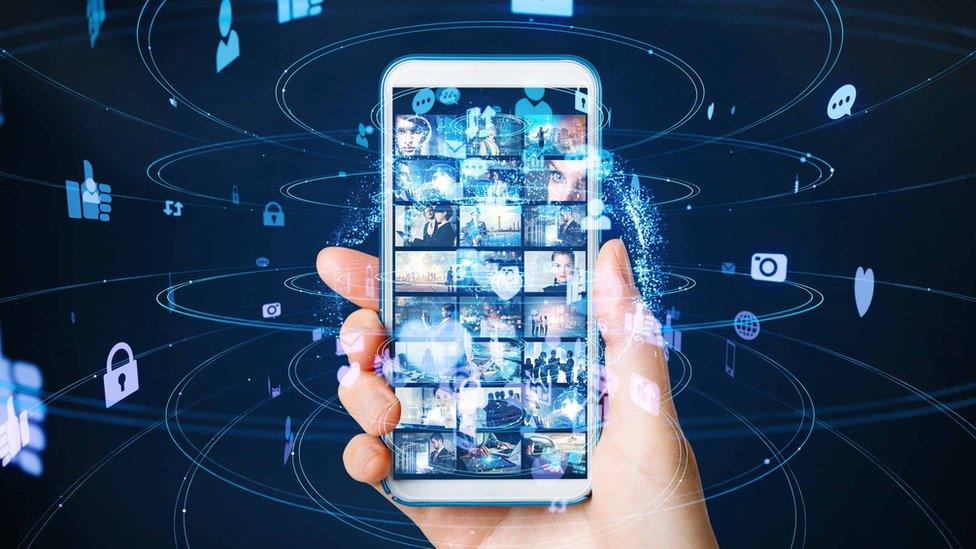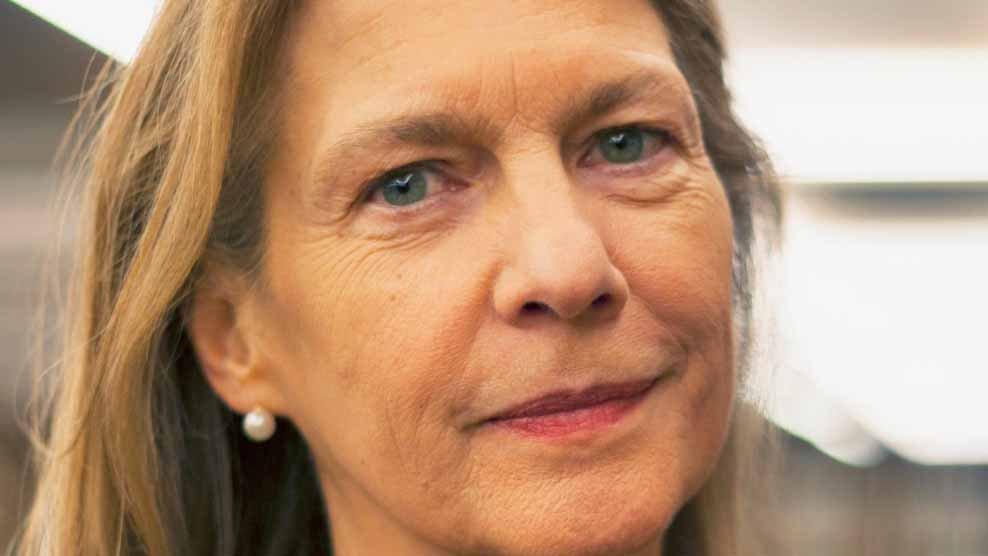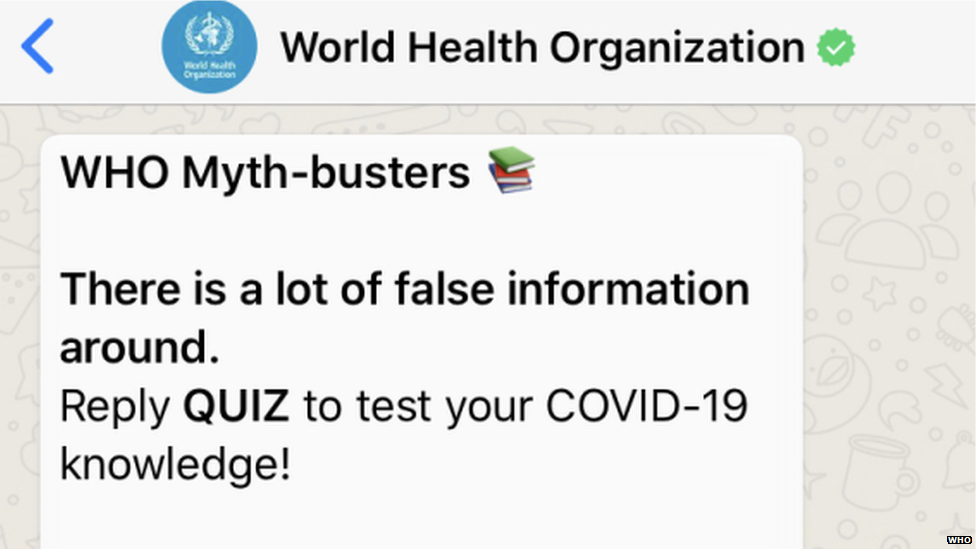Covid vaccine: Rumours thrive amid trickle of pandemic facts
- Published

Experts are advising how people can identify reliable vaccine information online
With a number of potential vaccines for Covid-19 now imminent, there are increasing concerns that misinformation online could turn some people against being immunized.
The World Health Organization (WHO) says the world's not only fighting the pandemic, but also what it calls an "infodemic" - where an overload of information, some of it false, makes it difficult for people to make decisions about their health.
And it's trying to answer people's concerns about the vaccines - as well as helping people evaluate the information they see on social media, external.
Nina, who is 21 and lives in London with her 82-year-old grandmother, is one of those who has concerns,
She says she has "mixed feelings" about Covid vaccines.
Nina, who is a freelance producer, isn't sure yet if she'll be vaccinated in the future. But she thinks the amount of information around makes it harder to understand the science behind the vaccines.
"Obviously like everyone I want this virus to go away as quickly as possible," she says.
"But at the same time, I'm not sure how much I trust the vaccine yet, because it's happened so quickly."
And her view is partly coloured by what she sees on social media, although she also says she seeks out information from "traditional" news sources.
"There are quite a lot of opinions flying around on Twitter, Instagram and TikTok. I think people are very easily influenced by that," she says.
Oscar Hodgson, a trainee solicitor who is taking part in a coronavirus vaccine trial at Imperial College London, says: "It's often very difficult with the amount of information that we are being bombarded with to make sense of what you should be doing."
But he adds: "I think a vaccine is one of the only ways out of the situation if we want to get away from endless lockdowns and curfews."
'Managing hope'
Researchers have moved at record speed to develop vaccines, less than a year in to this pandemic,
The WHO is monitoring data from more than 200 vaccine trials.
"There are now several types of vaccine in the pipeline based on different technologies," says Dr Sylvie Briand, the WHO's director of pandemic and epidemic diseases.
They are going through the same safety tests as vaccines already used all around the world.
"It's very expensive to do these phase three (human) trials. But many countries have come together to pay for it," Dr Briand says. "When you have enough funds the process can go much faster."
There are three key reasons it's been possible to develop coronavirus vaccines so quickly:
New technologies which were being developed before Covid struck have been used to speed up the process
Billions of dollars have been ploughed into vaccine research. Securing funding can take years
Finding ways to fight Covid-19 has been a top priority for every government around the world
Part of the problem, is that information about this pandemic has been coming out in dribs and drabs, as scientists make new discoveries about the virus and how best to manage it.
This, researchers say, has created space for misinformation to thrive.

Prof Larson says the safety of a vaccine is a common anxiety
"People are looking for information, and they're confronted with this confusing mix of some credible information, and then a lot of other very questioning, undermining or outright wrong information." says Prof Heidi Larson who runs the Vaccine Confidence Project at the London School of Hygiene and Tropical Medicine.
She has been studying vaccine confidence around the world for more than two decades.
While vaccine hesitancy has always been an issue, she is very concerned about the impact misinformation appears to be having on people's intention to take coronavirus vaccines.
Her team carried out a recent study , external looking at vaccine confidence in the UK and US.
Of 4,000 people in the UK. 54% said they definitely would be vaccinated. But after they were shown inaccurate claims about vaccine safety that figure fell by over six percentage points
And people on lower incomes and from black and minority ethnic backgrounds were most likely to reject a Covid vaccine.

How to identify inaccurate information online:
Assess the source - who shared the info and where did they get it from?
Go beyond the headline - it may be intentionally sensational
Identify the author - search their name online to see if they are real/ credible
Check the date - is the info up to date and relevant to current events?
Look for supporting evidence - do they have facts to back up their claims?
Check your own biases - could they affect you judgement on what's trustworthy?
SOURCE: WHO

"We've had an incredibly hopeful month with some of the new vaccine news," Prof Larson says.
"But we still don't have any proven vaccines. So we need to manage the hope.
"And one of the big anxieties is safety. So we can talk about the safety processes and the fact that those tried and tested processes are being followed carefully, with shortcuts in other parts of the long development process."

The WHO is putting vaccine information on platforms like WhatsApp
Prof Larson, along with the WHO and governments around the world, is working with some of the big tech companies to try and combat misinformation.
Facebook - which owns Instagram and WhatsApp - says it removes information that could lead to "immediate harm", including false claims about cures for Covid-19.
It also says it's banned ads that discourage people from getting vaccines, and reduced the number of people who see vaccine hoaxes.
But, it's still pretty easy to come across misinformation about Covid-19 and vaccines online, and to share those posts.
"We need to focus on building resilience, and filling that space" said Prof Larson.
"You can't just take away pieces of misinformation without providing some alternative."